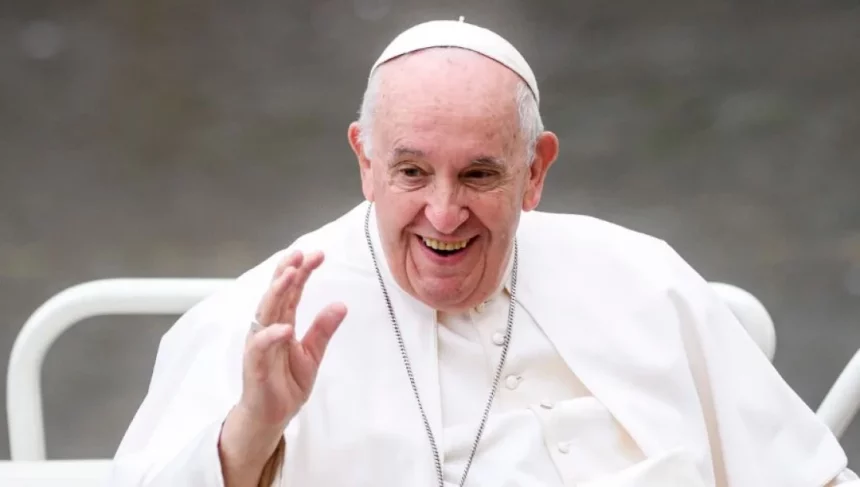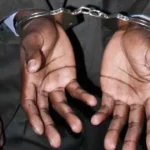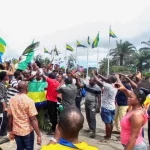Pope Francis arrived in Mongolia on Friday for the first papal visit to the Asian nation, as he sent a message of “unity and peace” to neighbouring China in a bid to improve ties.
The 86-year-old pontiff’s trip through Monday to the Buddhist-majority nation is a gesture of support for the tiny community of Catholics numbering about 1,400 — but at the same time a strategic move to improve Vatican ties with neighbours China and Russia.
Francis, who arrived Friday morning local time following a nine-hour journey from Rome, told journalists aboard the papal plane that the vast, sparsely populated country of Mongolia was one that “can be understood with the senses.”
Asked by a journalist whether he found diplomacy difficult, the pope answered: “Sometimes you need a sense of humour.”
The plane passed over Chinese airspace and the pontiff, following custom, sent a telegram to President Xi Jinping, bearing “greetings of good wishes” to him and the Chinese people.
“Assuring you of my prayers for the well-being of the nation, I invoke upon all of you the divine blessings of unity and peace,” he wrote.
China and the Holy See do not have official ties.
Responding to the Pontiff’s message, Beijing said it was keen to “strengthen mutual trust” with the Vatican.
“The blessings from the Vatican side reflect friendship and goodwill,” foreign ministry spokesperson Wang Wenbin said.
“China is ready to continue working with the Vatican side in the same direction to engage in constructive dialogue, enhance understanding, strengthen mutual trust and promote the process of improving relations between the two sides,” Wang added.
A line of Mongolian honour guards in traditional blue, red and yellow attire greeted Francis upon his arrival, along with foreign minister Batmunkh Battsetseg.
He then headed to the home of Bishop Giorgio Marengo, the Church’s youngest Cardinal, where he was greeted by hundreds of followers waving and chanting “Love live the pope!”
Sister Aleth Evangelista told AFP she and her fellow nuns felt “very blessed and fortunate to welcome the Pope in this country.”
“Mongolia is a non-Christian country, most of the people are Buddhist and Shamanist, but the pope is here to foster peace and communion among all people,” she said.
The voyage is Francis’ second to the region in a year after a September trip to Kazakhstan, underscoring the geopolitical importance of the sensitive area.
“This is a clear effort of the Holy See to take care of Central Asia and not abandon it to Russia or China,” Michel Chambon, a scholar of Catholicism in Asia, told AFP.
The visit — Francis’ 43rd voyage in his decade as head of the Catholic Church — is also crucial in keeping the door open for improved Vatican ties with Beijing and Moscow, which have yet to offer the Pope an invitation.
The Holy See last year renewed a controversial deal with China on the thorny issue of bishop appointments, and Francis has sought to broker an end to the war in Ukraine with Russia.
“It’s a way to not give up, to remind them ‘I’m here!'” Chambon said. “It’s a way not to just stay in Rome and wait for things to happen but to jump in.”
– Stamina test –
The trip will be a stamina test for the pope, who continues to travel widely despite undergoing a hernia operation in June and pain in his knee that has forced him to use a wheelchair.
After a day of rest, the pontiff’s itinerary Saturday includes a welcome ceremony, meetings with President Ukhnaa Khurelsukh and Prime Minister Luvsannamsrai Oyun-Erdene, and a first address to authorities, diplomats and members of civil society.
The Jesuit pope will meet the Catholic community — which includes just 25 priests and 33 nuns, only two of them Mongolian — later Saturday in Saints Peter and Paul Cathedral. Its circular nave resembles a “ger”, the Mongolian nomads’ traditional tent dwelling.
An interreligious meeting and a mass inside a newly built ice hockey arena are on the agenda for Sunday.
Pilgrims from nearby countries are expected at the mass, according to the Vatican, including from Russia, China, South Korea, Thailand, Vietnam, Kazakhstan, Kyrgyzstan and Azerbaijan.
– ‘Not taking sides’ –
Once part of the empire of Genghis Khan, Mongolia is dependent on Russia for energy imports and on China for the export of its raw materials, primarily coal.
Francis will likely use his trip to the former Soviet satellite state, a democracy since just 1992, to hammer home democratic principles and highlight the need to preserve Mongolia’s environment, where climate change, overgrazing and mining are causing desertification over wide swathes of territory.
Chambon, a fellow at Singapore’s Asia Research Institute, said Francis may warn authorities they have a responsibility to govern well.
“The pope is not taking sides but is really putting politicians in front of their responsibilities,” Chambon said.



